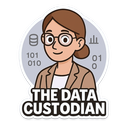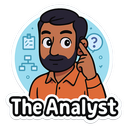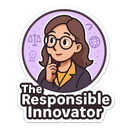data science foundations
Analyse and visualise large datasets to find patterns.
Your Learning Journey
Understanding the Scale and Variety of Big Data
Importing a Large CSV File for Analysis
Handling Missing Values and Inconsistent Formatting
Finding Trends and Patterns with Pivot Tables
Choosing the Right Chart to Communicate Findings
Summarising Your Data Project on a Single Slide
Low Stakes Knowledge Check
Module introduction
Have you ever wondered what story is hidden inside the numbers? Every click, every purchase, and every search you make online is a piece of a giant puzzle. In this module, you'll become a data detective, diving into the exciting world of data science. We'll start with the basics of what "big data" is and how it's all around us. This journey will take you from learning how to ask smart questions to being able to confidently clean up messy real-world data, uncover cool patterns, and create awesome visualisations that tell a compelling story. By the end of this module, you will have the power to turn raw data into meaningful knowledge and valuable insights.
The lessons in this unit will take us through the basic stages in the Data Science Lifecycle:

The Data Science Lifecycle
Why does this module matter?
The ability to understand and interpret data is one of the most valuable skills in the modern world. It's not just about numbers; it's about finding stories, making predictions, and solving real-world problems. Whether you're interested in science, business, sports, or entertainment, learning to work with data will give you a powerful toolkit to make better decisions and understand the world more deeply.
1
For you
This module will help you develop several key computing personas:

The Data Custodian: This is the core persona for this module. You will learn to follow the entire lifecycle of data, from understanding its raw form to processing it into useful information and, finally, turning it into valuable knowledge and insight. You'll become a guardian of data, understanding how to handle it responsibly to unlock its secrets.

The Analyst: As an analyst, you'll learn to ask the most important question: "What problem are we really trying to solve?". This module will teach you how to look at a real-world need, formulate questions, and use data to find clear, actionable answers, bridging the gap between a vague idea and a technical solution.

The Responsible Innovator: Working with large datasets brings ethical responsibilities. As a Responsible Innovator, you'll learn to think about the impact of your analysis. You'll consider questions of privacy and bias, asking not just "What can we learn from this data?" but also "Should we, and is it fair?".
2
For your future
The skills you learn in this module are the starting point for many exciting and in-demand careers. One of the most direct pathways is to become a Data Scientist.
Career focus: A Data Scientist is an analytical expert who uses programming, statistics, and machine learning to find actionable insights in large datasets. They help organisations make smarter, data-driven decisions.
Key Skills: This module will give you a great start in data analysis using spreadsheets. To become a Data Scientist, you would build on this with programming skills (especially in Python), database knowledge (SQL), and data visualisation tools. Strong communication skills are also vital to explain complex findings to others.
Interesting facts: The demand for Data Scientists is incredibly high, with job postings growing rapidly year on year. It's often called the "sexiest job of the 21st century" because it combines the skills of a computer scientist, a statistician, and a storyteller. Data Scientists work in almost every industry, from helping to design championship-winning sports teams to discovering new life-saving medicines.
Our Learning Journey
Our journey into data science begins by exploring the vast amounts of data being created around us every day and learning how to ask the right questions. You will then get hands-on with a large, real-world dataset, learning the essential skill of "cleaning" it to fix errors and inconsistencies. Once our data is ready, we'll become detectives, using analysis tools like sorting, filtering, and pivot tables to uncover hidden patterns and trends. Finally, you will learn how to choose the best type of chart to visualise your findings, turning your analysis into a clear and compelling story that you can present to others.
Last modified: January 12th, 2026





















